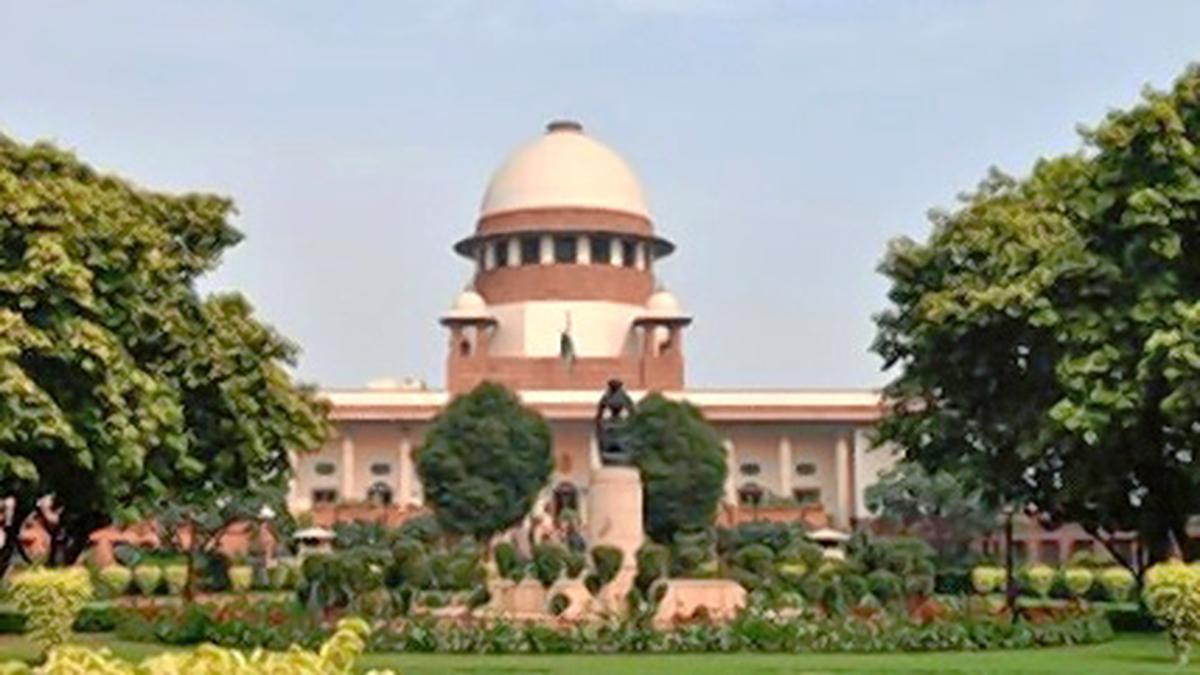 |
|
The Supreme Court of India is set to hear petitions challenging the legality of a new law concerning the appointment of the Chief Election Commissioner (CEC) and Election Commissioners. This significant legal challenge centers on the law's granting of a dominant role to the Central government in the appointment process, a point of contention for petitioners who argue it undermines the independence of the Election Commission. The hearing, scheduled for February 12th, 2025, holds critical importance, particularly given the impending retirement of the current CEC, Rajiv Kumar, on a date close to the hearing. The petitioners aim to secure a decision before the appointment of the next CEC, ensuring the process adheres to principles of impartiality and fairness. The urgency is reflected in advocate Prashant Bhushan's oral mentioning before the court, highlighting concerns about insufficient time for a thorough hearing if the case remained at the bottom of the cause list.
The case's core revolves around the constitutionality of the Chief Election Commissioner and other Election Commissioners (Appointment, Conditions of Service, and Term of Office) Act of 2023. This act significantly alters the selection committee responsible for recommending appointments, replacing the Chief Justice of India with a Union Cabinet Minister nominated by the Prime Minister. This alteration, petitioners argue, gives the government undue influence over the selection of individuals tasked with overseeing free and fair elections. Justice Surya Kant previously highlighted the central question: whether the court's authority to deliver binding decisions under Article 141 of the Constitution can be undermined or diluted by legislative action. The court's decision will have profound implications for the balance of power between the judiciary and the legislature in matters concerning the independence of vital constitutional bodies.
The arguments presented by the petitioners, including NGO Association for Democratic Reforms and activist Jaya Thakur, build upon a previous Supreme Court judgment in the Anoop Baranwal case (March 2, 2023). This earlier judgment outlined a different composition for the Selection Committee, including the Chief Justice of India. The petitioners contend that the 2023 Act directly contradicts this ruling and was introduced to circumvent it. The primary focus of the legal challenge is Section 7(1) of the statute, which details the composition of the new Selection Committee. This section, petitioners argue, is fundamentally flawed as it prioritizes government influence over the impartiality demanded for such crucial appointments. The Solicitor General, Tushar Mehta, representing the Union government, countered these arguments by pointing to an earlier denial of interim relief, specifically the refusal to stay the operation of the 2023 Act and subsequent appointments of Election Commissioners. The legal battle hinges on the interpretation of constitutional provisions and the delicate balance between legislative and judicial authority in safeguarding democratic principles.
The upcoming February 12th hearing is anticipated to be a landmark moment in Indian constitutional law. The Supreme Court's decision will not only impact the upcoming appointment of the CEC but will also set a crucial precedent for the balance of power between the government and independent constitutional bodies. The case raises fundamental questions about the independence of the Election Commission, an institution crucial for maintaining the integrity of the democratic process. The outcome will have far-reaching consequences for the future of Indian elections and the relationship between the judiciary and the executive branch of government. The court's interpretation of Article 141 and its ability to uphold its rulings against legislative overrides is at the heart of this crucial legal challenge. The decision will shape not only the structure of the Election Commission but also the broader understanding of judicial review and its limits in the Indian constitutional framework. The stakes are high, as the independence of the Election Commission is paramount to the fairness and credibility of the electoral process in a democratic nation.
Source: Supreme Court fixes February 12 hearing on pleas challenging CEC/EC appointments law
